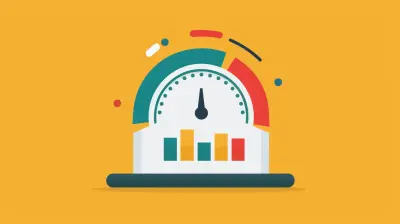28 December 2024
Let’s face it, we’ve all been there—staring at a growing to-do list while binge-watching yet another season of our favorite show. It happens. Procrastination sneaks up on us and derails even the best-laid plans. But when it comes to financial planning, putting things off can cost you more than just time. It can cost you your peace of mind, future security, and potentially thousands of dollars.
So, how do you beat that sneaky procrastination monster when it comes to managing your money? The answer lies in behavioral finance—a fancy term for understanding the psychology behind how we think, feel, and act with money. Let’s dive deep into how procrastination affects our financial health and how behavioral finance can help us stop delaying and start acting. 
Why Do We Procrastinate in Financial Planning?
Let’s be honest: financial planning can feel overwhelming. Whether it’s budgeting, saving for retirement, or investing, many of us procrastinate simply because the tasks seem too big, too boring, or too intimidating.But here’s the catch: procrastination isn’t just laziness or carelessness. It’s actually rooted in our psychology. Research shows that our brains are wired to prioritize short-term gratification over long-term rewards. This is called "present bias." In simple terms, our minds would rather enjoy a Starbucks latte now than deposit $5 into a savings account for a future goal.
And then there’s the fear factor. Some people avoid financial planning because they’re afraid of confronting their debt, their spending habits, or the “what-ifs” of the future. It feels easier to bury your head in the sand, right? But trust me, that’s a bad idea.
Procrastination in financial planning isn’t harmless; it has real consequences. Every day you delay starting, you’re losing out on compound interest, missing out on investment opportunities, or staying stuck in the cycle of paycheck-to-paycheck living. 
The Cost of Financial Procrastination
To put things into perspective, let’s consider a simple example. Say you’re 25 years old and thinking about saving for retirement. You decide, “I’ll start next year.” Next year becomes the year after that. Before you know it, you’re 35, and you still haven’t started saving.What’s the cost of that delay? Let’s crunch some numbers. If you’d started investing $200 a month at age 25 with a 7% annual return, you’d have roughly $480,000 by the time you were 65. If you started at 35 instead? That drops to about $240,000. You’ve literally halved your earnings just by waiting 10 years. Ouch, right?
The cost of procrastination isn’t just financial—it’s emotional too. Putting off your money goals creates unnecessary stress, anxiety, and guilt. And honestly, who needs more of that? 
How Behavioral Finance Can Help
Okay, so we know procrastination is a problem. But here’s the good news: behavioral finance can give us tools to fight back. Think of it as hacking your brain to make better financial decisions. Let’s dig into some actionable strategies based on behavioral finance principles.1. Set Micro-Goals to Beat the Overwhelm
When a task feels huge, our brains default to avoidance. That’s why “save $500,000 for retirement” feels impossible, but “save $50 this week” feels doable. Break your financial goals down into bite-sized pieces.Setting micro-goals is like breaking up a marathon into 1-mile increments. You don’t have to do it all at once. Just take one step at a time. Baby steps are still progress!
2. Automate Everything
Let’s be real: we’re more likely to follow through if we take ourselves out of the equation. Behavioral finance teaches us that automation removes the temptation to procrastinate.Set up automatic transfers into your savings account or retirement fund. That way, you’re saving money before you even have a chance to spend it. Think of it as setting your financial plan to autopilot.
3. Use Visual Cues to Stay Motivated
Our brains love visual reminders. Behavioral finance suggests that seeing your progress can motivate you to keep going.Try using a financial tracker app or a good old-fashioned chart on the fridge to track your savings, debt payoff, or investment growth. Imagine watching a thermometer fill up as you hit your goals. Pretty satisfying, right?
4. Reframe Financial Tasks as Opportunities
Why do we procrastinate? Because we see financial planning as a chore—a dreaded task like cleaning the gutters. But what if you reframed it?Instead of thinking, “Ugh, I have to make a budget,” think, “I’m designing a spending plan that will give me freedom and peace of mind.” Behavioral finance experts call this “framing,” and it’s all about shifting your perspective.
5. Reward Yourself for Progress
Rewarding yourself is an easy way to trick your brain into staying on track. When you hit a small financial milestone—like saving $1,000 or paying off a credit card—treat yourself!It doesn’t have to be expensive. Maybe it’s a dinner out, a new book, or an afternoon off to relax. Your brain will associate financial progress with positive feelings, making it easier to stay motivated. 
Practical Tips to Get Started
Now that you’ve got the tools, let’s talk about some simple steps you can take today to kick procrastination to the curb and get your finances in order:1. Start With a Financial Check-Up
You can’t fix what you don’t know. Take a couple of hours to assess where you’re at financially. What’s your income? Expenses? Debts? Savings? Think of it as your financial baseline.2. Create a “Just for Now” Plan
Don’t worry about creating the “perfect” budget or investment strategy. Start with a simple plan you can tweak later. The key is to take action today—even if it’s small.3. Find an Accountability Partner
Sometimes, we just need someone to nudge us into action. Tell a friend, partner, or financial coach about your goals. Share your progress and ask them to hold you accountable.4. Embrace the 5-Minute Rule
Whenever you feel like procrastinating, tell yourself, “I’ll just do this for 5 minutes.” Once you start, you’ll find it easier to keep going. It’s like tricking your brain into action mode.Why Your Future Self Will Thank You
Imagine your future self five, ten, or twenty years down the road. What kind of life do you see? Do you want to travel the world? Retire early? Help your kids through college?Here’s the thing: your future self is counting on you to start today. Every small step you take now adds up to a brighter, more secure tomorrow. Procrastination might feel comforting in the moment, but it steals opportunities from your future self.
The best time to start financial planning was yesterday. The second-best time is today. Don’t overthink it—just start. Your future self will thank you.














Archer McLaurin
Procrastination is a common struggle, especially when it comes to finances. Remember, it's okay to seek support and take small steps. Understanding your behaviors is the first step towards building a brighter financial future. You’ve got this!
February 3, 2025 at 11:56 AM